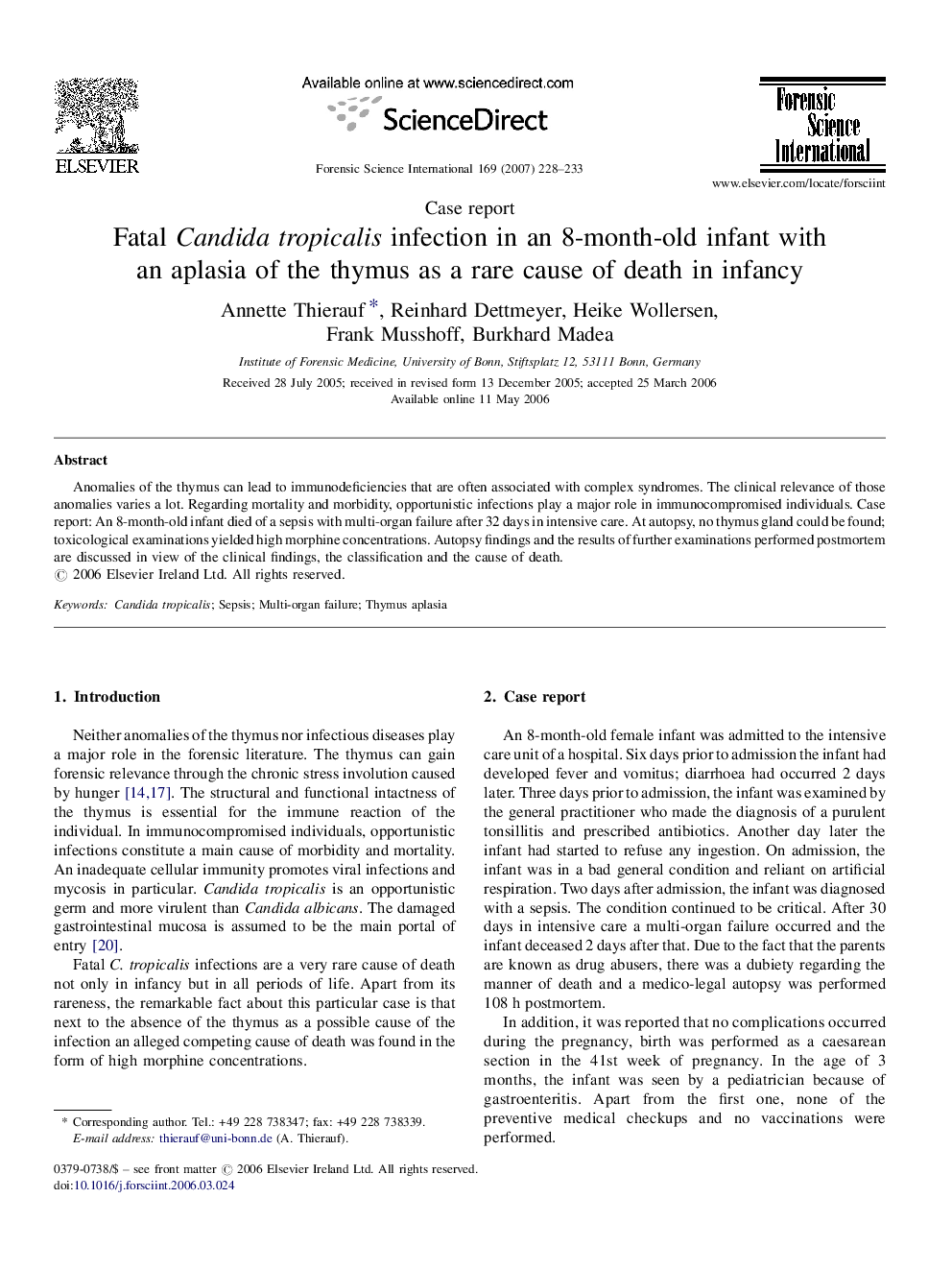| Article ID | Journal | Published Year | Pages | File Type |
|---|---|---|---|---|
| 98165 | Forensic Science International | 2007 | 6 Pages |
Abstract
Anomalies of the thymus can lead to immunodeficiencies that are often associated with complex syndromes. The clinical relevance of those anomalies varies a lot. Regarding mortality and morbidity, opportunistic infections play a major role in immunocompromised individuals. Case report: An 8-month-old infant died of a sepsis with multi-organ failure after 32 days in intensive care. At autopsy, no thymus gland could be found; toxicological examinations yielded high morphine concentrations. Autopsy findings and the results of further examinations performed postmortem are discussed in view of the clinical findings, the classification and the cause of death.
Related Topics
Physical Sciences and Engineering
Chemistry
Analytical Chemistry
Authors
Annette Thierauf, Reinhard Dettmeyer, Heike Wollersen, Frank Musshoff, Burkhard Madea,
